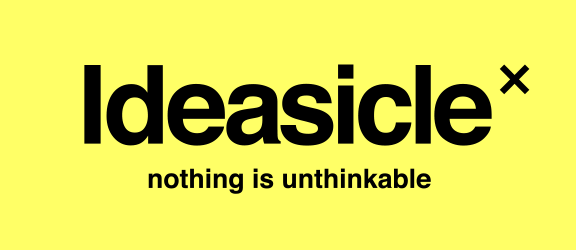Don't Let Your Brand Get Hijacked By A Temporary CMO
It’s new gig o’clock.
I joined an interesting group recently called “Fractionals United and the branding sub-group did their bi-monthly Google Meetup. Super smart people discussed the difference between “brand” and “marketing.” Which led to a discussion about the importance of “branding” in marketing these days. Was it more important or less than, say, ten years ago? The overwhelming consensus was that branding seemed less important today. And this is about when I introduced a potentially correlating fact.
The short-term tenure of a CMO.
CMOs from the top 100 advertisers in the US, on average, occupy the role for just 39 months, or 3.3 years (source: Spencer Stuart, 2022). When we think of the big brands like Apple or Nike or IBM, we think in terms of decades, not months, right? So what does this CMO revolving door do to brands? The answer may lie in the CMO’s true motivations for revolving those doors.
Sure, many CMOs are promoted and take on different roles within the same company. That would account for some of the attrition. But most have taken better CMO jobs at bigger, better, and higher profile companies. Think about that for a minute. If they’re continually leaving for bigger and better, what does that say about how they view their current CMO job at any given moment? More importantly, what does it say about how they view the brand at their current company?
Campaigns are king, brands be damned.
CMOs who see their current jobs as stepping stones to the next opportunity likely care less about the existing brands at their existing companies and more about gaining short-term results. CMOs feel the need to leave a mark on their current company—and FAST—and not let the slow inertia of the “brand” leave a mark on them. The current ad agency, as skilled and experienced as they may be, is often fired because a new agency demarcates a clear, new beginning for the CMO.
And, so, it’s logical then to conclude that CMOs may directly or indirectly sacrifice the brand in order to achieve short-term results in other short-term ways. They value campaigns over brands. Branding take too long while campaigns can be developed, produced, run, and optimized in time (3.3 years?) to show some real results. Then, it’s on to the next CMO gig. Company brands, then, are diminished in portion to the degree the CMO’s brand is enhanced.
Of course, not all CMOs are like this. But is there a way to immunize companies from the potential of this kind of brand hijacking? In our Fractional Meetup, I threw out the following idea.
temporary cmo or fractional Brand Officer?
The more I learn about fractional positions, the more fascinated I am by the concept. Companies can bring in highly skilled, potentially very expensive talent for, well, a fraction of the cost of the person full time. So, what if companies started bringing in Fractional Brand Officers to be the steward of the brand longer term? Their charge is simple: protect the integrity of the brand, the brand idea, and how the brand is represented in the marketplace.
Now, this is not to say that a CMO won’t have ample flexibility within the FBO’s brand boundaries to make his or her mark. It’s also not to say the CMO and FBO may not decide together that the brand needs to evolve or pivot. But it is to say the FBO is biased towards preserving the brand with the same force as the CMO pushes to launch a new campaign. Balance ensues.
The key is for CEOs to commit to an FBO over the long term. At least as long as the CMOs average tenure, which is a little over 7 years on average. Think of it this way. You’re mitigating the risk of “temporary” in years for a CMO with the temporary in days per week with an FBO.
NHL great, Paul Coffey, played for 9 different NHL teams.
Coffey played for 20 years in the NHL and for 9 different teams. That’s an average of 2.22 years per team. Do you think he cared very much whether his sweater had the brand of a Bruin, Penguin, Red Wing, or Oiler? Maybe a little. But not likely so. To NHL players like Coffey, it’s more about beefing up personal stats in order to get the next gig.
Does your CMO care about your company’s “sweater”? That’s the real question.
Will Burns is a Fractional Brand Officer and the Founder & CEO of the revolutionary virtual-idea-generating company, Ideasicle X. He’s an advertising veteran from such agencies as Wieden & Kennedy, Goodby Silverstein, Arnold Worldwide, and Mullen. He was a Forbes Contributor for nine years writing about creativity in modern branding. Sign up for the Ideasicle Newsletter and never miss a post like this.


